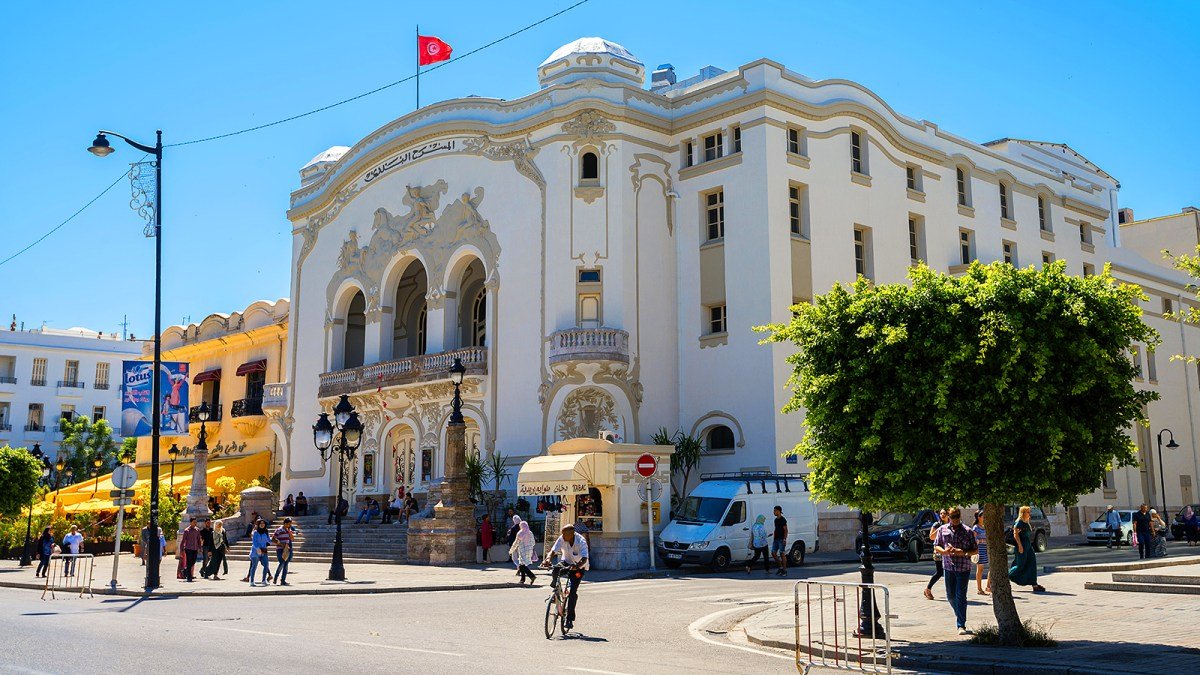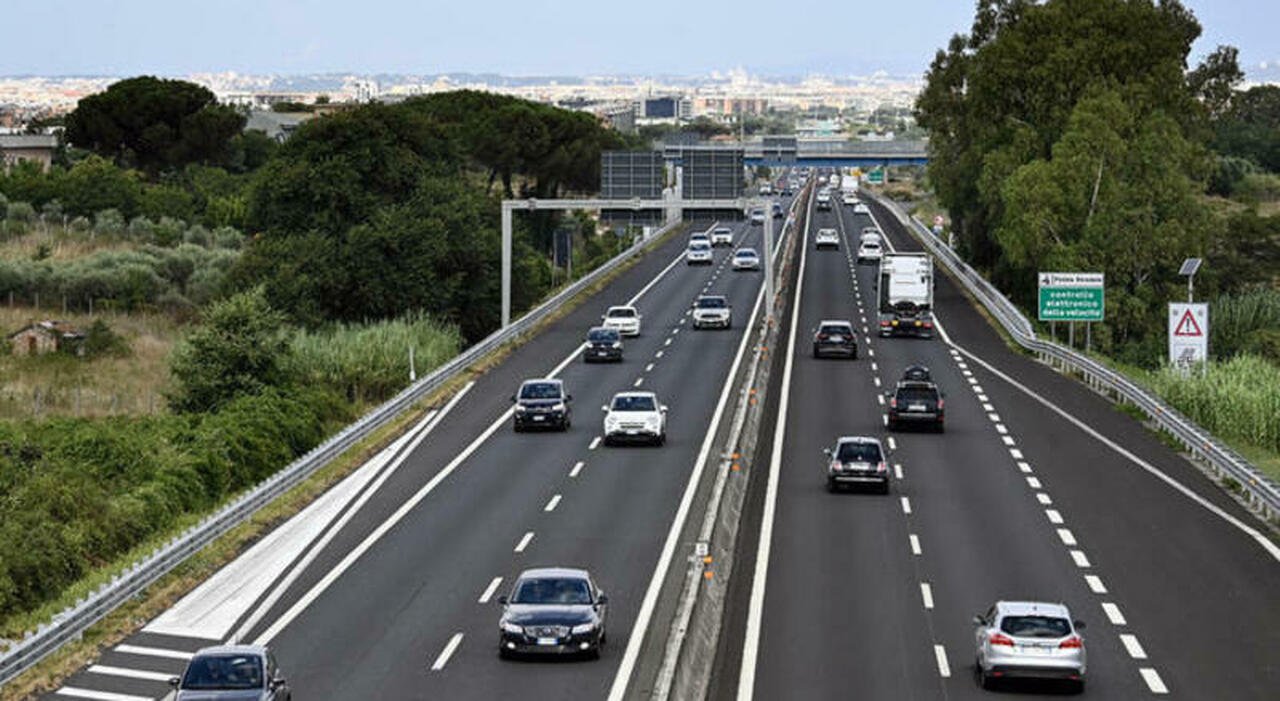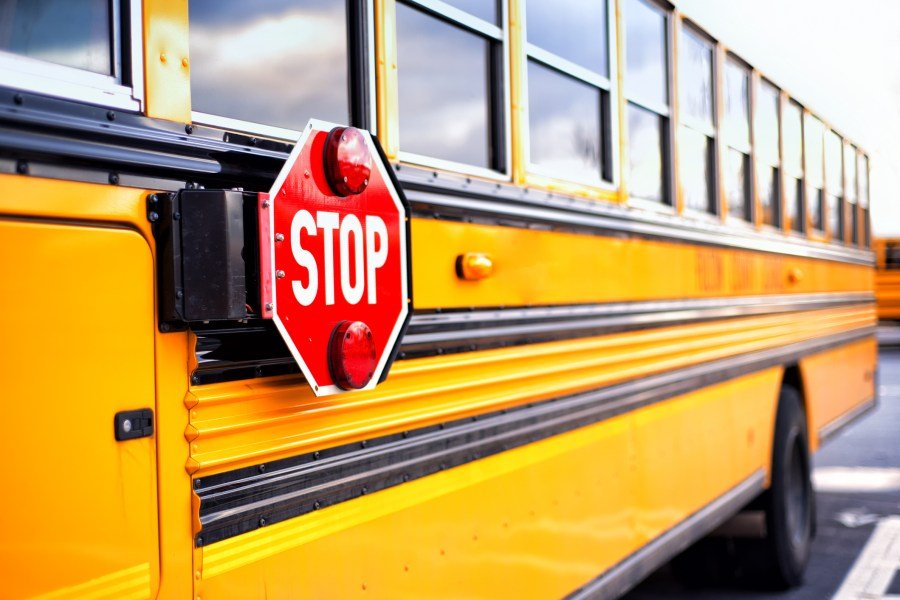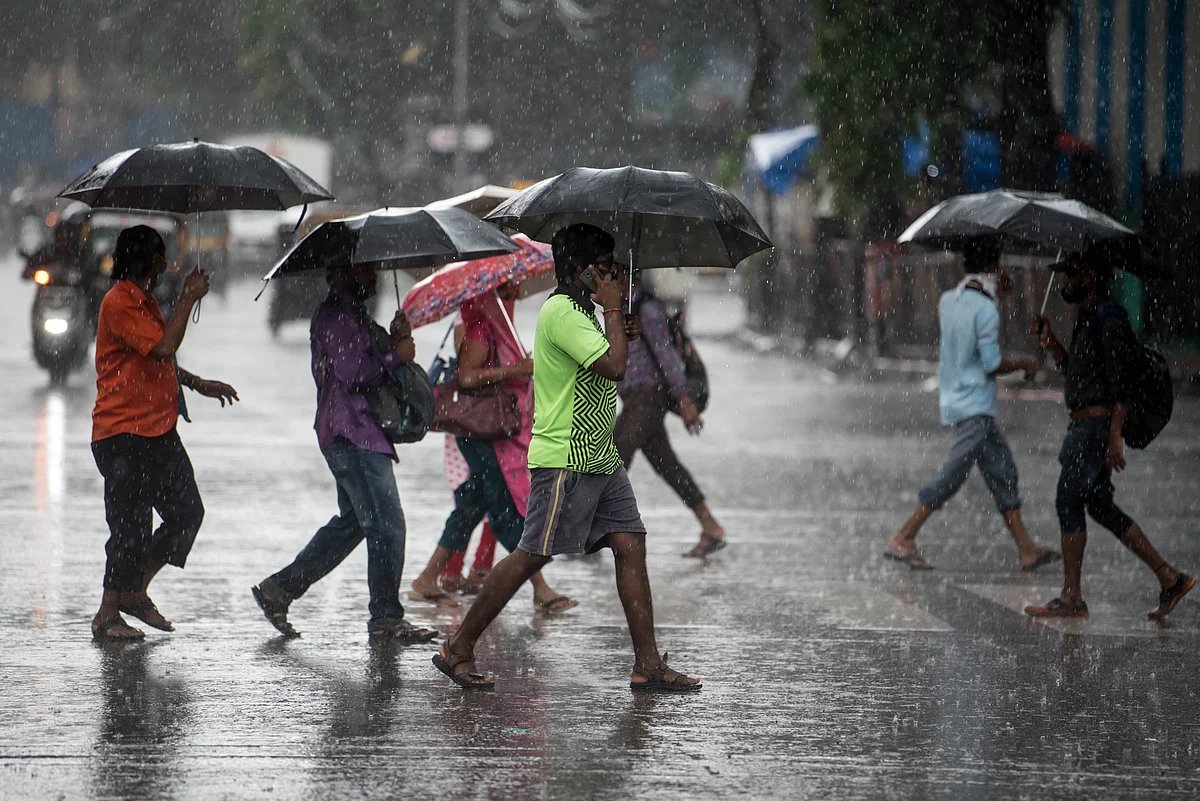Tips & Advices
Is it safe to travel to Tunisia right now? Latest travel advice

Safety fears have long subdued tourism in Tunisia. In 2015, a police bus was targeted by a terrorist; the incident triggered a state of emergency across the country that’s been in place since. That same year, two further terror attacks saw 38 tourists killed at a beach resort near Sousse and 21 tourists killed at the Bardo Museum in Tunis. There have been more recent incidents, occurring every year between 2020 and 2023, although none of these have involved tourists.
The UK Foreign Office considers most of Tunisia as safe to travel to, although there are regions around the country’s borders with travel advisories in place.
Following Israel’s attack on Iran’s nuclear sites on June 13, the Foreign Office warned that “ongoing hostilities in the region and between Israel and Iran could escalate quickly and pose security risks for the wider region”. This advice remains in place despite a ceasefire that has held since June 24.
• Is it safe to travel to the Middle East right now?
What’s the latest government advice about travelling to Tunisia?
Houmt Souk on the the Tunisian island of Djerba
GETTY IMAGES
The UK Foreign Office currently advises against travelling to several regions in Tunisia, all of which are around its borders.
It advises against all travel to:
• the Chaambi Mountains National Park and the designated military operations zones of Mount Salloum, Mount Sammamma and Mount Mghila
• the militarised zone south of the towns of El Borma and Dhehiba
• within 20km of the Libyan border area north of Dhehiba
• the town of Ben Guerdane and the immediate surrounding area
It also advises against all but essential travel to:
• within 75km of the Tunisia-Libya border, including Remada, El Borma and the town of Zarzis
• areas north and west of the town of Ghardimaou in Jendouba Governorate, including El Feidja National Park
• within 30km of the Tunisia-Algeria border in El Kef and Jendouba governorates, south of the town of Jendouba, including the archaeological site of Chemtou
• Kasserine Governorate, including the town of Sbeitla
• within 10km of the rest of the Tunisia-Algeria border south of Kasserine Governorate
• within 10km of Mount Mghila
• Mount Orbata
If travelling to other parts of the country, there are still some safety considerations to bear in mind (more below).
Has Tunisia been affected by the conflict in the Middle East?
Ksar Ouled Soltane, a 15th-century fortified granary in Tataouine
GETTY IMAGES
Tunisia is further away from Israel than destinations such as Sicily and Malta, and has not been affected by the conflicts between Israel and Hamas, Lebanon-based Hezbollah, or Iran.
However, on June 13, 2025, amid escalating tensions between Israel and Iran, the Foreign Office updated its guidance to state: “Ongoing hostilities in the region and between Israel and Iran could escalate quickly and pose security risks for the wider region. You should monitor local and international media for the latest information, be vigilant and follow the instructions of local authorities.”
A ceasefire in the conflict between Israel and Iran has now held since Tuesday, June 24, following 12 days of fighting that closed down airspace across the Middle East and disrupted flights and travel plans, but this has not changed the Foreign Office’s travel advice.
Tunisia has close ties with Palestine, with its president, Kais Saied, calling for support for the Palestinian people. Within Tunisia, there have been rallies in support of Palestine.
The UK Foreign Office says: “In response to the current situation in Israel and the occupied Palestinian territories, peaceful demonstrations have occurred in some Tunisian cities, including outside some western embassies.” However, it warns that protests may occur with “little or no warning” and “can sometimes become violent”. They have usually been concentrated around the capital, Tunis, and other major cities, typically near government buildings and outside Western embassies.
To reduce your personal risk, the Foreign Office recommends avoiding demonstrations where possible (or moving away if they start to take place), obeying the instructions of the local authorities, monitoring the media, and following the advice of your hotel or tour operator.
Is it safe to travel to Tunisia right now?
There have been safer periods in Tunisia’s history. The country is in a state of emergency, which means an increased security presence, with checkpoints in place. This was imposed after a a suicide attack on a police bus in 2015, and has been extended multiple times. It was most recently extended until the end of 2025.
The Foreign Office says that terrorists are “very likely” to try to carry out attacks in Tunisia, and warns that there have been incidents in recent years, including several in 2023. The places particularly at risk of being targeted are crowded areas, government buildings, transport networks, businesses with western interests, religious sites, and areas where foreign nationals and tourists are known to gather.
In addition to terrorism, there may be a potential threat of kidnapping, particularly near the borders and in more remote parts of the country. Travellers should also be vigilant for pickpocketing, bag-snatching and other petty theft.
What are Tunisia’s entry requirements?
A dromedary ride through the dunes near the desert oasis village of Zaafrane
GETTY IMAGES
British citizens do not need a visa to enter Tunisia for tourism purposes for visits of up to 90 days. If you intend to stay for longer, you’ll need to get a suitable visa.
Your passport needs to be valid for the duration of your stay in Tunisia, but it doesn’t need any additional validity beyond this. If you’re a dual national of the UK and Tunisia, you should enter and leave the country on the same passport.
When you enter Tunisia, you may be asked to share your contact details and travel information with the authorities, including evidence of your hotel reservation. If you cannot supply this, you may be denied entry or experience delays.
The UK Foreign Office says that some British nationals of south Asian descent have also been delayed and questioned by immigration authorities. You can report this to the British Embassy on +216 71 108 700, but it cannot override border control decisions made by Tunisian authorities.
Is Tunisia safe for female travellers?
The old town in Mahdia, on Tunisia’s east coast
GETTY IMAGES
In addition to the general safety concerns mentioned above, the Foreign Office says that reports “of sexual harassment and sexual assault statistically increase in the summer months”. This has included in busy public places at night, and in quieter public parks and on beaches during the day. You should stay alert and use caution.
• What can women do to stay safe while abroad?
Is Tunisia safe for LGBT travellers?
Homosexuality is a criminal offence in Tunisia and those who are prosecuted could face prison sentences. LGBT activism does exist in the country, and there is an underground community.
• Safest countries for LGBT travellers
• Is it safe to travel to Egypt right now?
Tips & Advices
Essential Road Safety Tips for Summer Travel

Once again this year, the Highway Patrol, in anticipation of the massive summer exodus, wants to disseminate the useful vademecum to tackle and reach holiday destinations safely, advice that remains valid for any movement. Before setting off, it is good practice, first of all, to check the vehicle’s efficiency, with particular attention to the tire pressure and tread conditions which must not be less than 1.6 millimeters. Equally important, if the vehicle is equipped, is to also check the conditions of the spare wheel or otherwise the inflation kit. Check the engine fluid levels, brake pad wear, and therefore the correct functioning of all the vehicle’s lighting devices such as headlights, rear lights, brake lights, and turn signals. Equally important is the condition of the front and rear windshield wipers, whose proper functioning is essential for optimal visibility even in case of rain. The arrangement of the luggage must also be taken care of in such a way that the distribution of the loads does not unbalance the stability of the vehicle and, if using roof racks, always ensure they are well anchored. In case of transport, pets must be secured in the appropriate carriers. Before departure, avoid consuming large meals or drinking alcoholic beverages and possibly check the traffic and weather conditions along the route to be traveled. It is also reminded that it is mandatory for passengers in the front and rear seats to always wear seat belts and secure children in appropriate approved seats. For those traveling on two wheels, it is important to fasten the protective helmet properly and use protective measures. During the journey, proceed at a moderate speed, respecting the limits set by the road owner, exercising maximum caution if you decide to overtake using the appropriate lane. Traffic on the highway, the red and black flag days for August 2025. Avoid any distraction during the journey, especially using the smartphone, even for a very short moment because hundreds of meters are covered without the necessary attention. On the highway, it is reminded that it is allowed to occupy the emergency lanes only in cases of actual necessity, and if so, position the emergency triangle at least 100 meters from the broken-down vehicle, always wearing the reflective vest. Where possible, however, it is better to stop in the appropriate service areas. In any case, without further delay, contact the single emergency number (112) indicating the exact position and wait for the arrival of assistance. At the same number, all possible issues such as accidents, vehicles in trouble, objects on the road, or fires must be reported; in this regard, it is absolutely forbidden to throw cigarettes or matches out of the windows. In case of fatigue, it is advisable to reach a safe place for a stop, so as to resume normal attention conditions for safe and responsible driving. On the State Police website, in the area reserved for Italy’s Viability (https://www.poliziadistato.it/articolo/1815cb58d622d6ac985858152) the ‘Summer Exodus Plan 2025’ has been published where it is possible to find: – the intense traffic calendar (flags); – the mapping of the road and motorway sections most subject to traffic issues and related alternative itineraries (north – center – south and islands); – the geographical areas ordinarily subject to overflight by State Police and Carabinieri aircraft; – the railway police surveillance plan; – the mapping of speed detection systems (tutors) located on the motorway network.
© ALL RIGHTS RESERVED
This article is automatically translated
Tips & Advices
Mississippi school travel safety tips

JACKSON, Miss. (WJTV) – Mississippi parents and students are encouraged to stay safe while going to school and back home.
AMR in central Mississippi advised parents to teach their children the following rules to stay safe when traveling to or from school.
Getting on or off the bus:
-
Riders should stay outside the “danger zone” around the bus. The danger zone is ten feet wide all the way around the bus. For little children, say six “giant steps” At that distance from the bus, the bus driver can see a child.
-
If you drop something near the bus, first signal the driver and tell him or her. Never try to pick it up first because the driver may not be able to see you.
-
Always stay away from the wheels of the bus.
-
Hold on to the handrail on the bus.
-
Never assume other vehicles have stopped for the school bus. Keep watching for other vehicles as you walk in front of the bus.
-
If you must cross the street in front of the bus, walk at least ten feet ahead of the bus until you can turn around and see the driver.
-
Make sure the bus driver can see you.
-
Wait for a signal from the bus driver before beginning to cross.
-
When the bus driver signals for you to cross, walk across the road while also keeping an eye out for sudden traffic changes.
-
If you leave something on the bus, never go back to get it. The bus may already be moving and the driver might not see the child.
Getting to the bus stop:
-
Parents should walk smaller children to their stop.
-
Each child should be dressed in contrasting bright colors.
-
Leave home early enough to avoid running to the bus. Running to the bus can be dangerous.
-
Older children should watch the younger ones closely.
-
Children walking or standing in groups are easier for drivers to see than one child alone.
Waiting for the bus to arrive:
-
Always stand at least ten feet from the curb or edge of the road.
-
Do not run or play while waiting for the bus.
-
Do not take anything out of backpacks while waiting. That way, nothing gets dropped or blows away in the wind.
Getting on the bus:
-
Be sure the bus driver can see you and you can see the bus driver.
-
Enter the bus in a single file with the younger children first.
-
Never walk behind the bus.
While the bus is in motion:
-
Stay seated, facing forward.
-
Keep your hands to yourself.
-
Talk quietly. Don’t talk at all near railroad crossings so the driver can listen closely for sounds of a train.
-
Do not distract the driver.
-
Keep the aisles clear. Keep your belongings on your lap.
-
Do not block emergency exits with sports equipment or musical instruments.
Walking to and from school:
-
Always walk on the sidewalk when one is available.
-
Cross the street only at intersections or street corners. Do not “jaywalk.” If a crosswalk is painted on the street, use it.
-
Before you begin to cross the street, stop and look left, right and left again to spot oncoming cars.
-
If no cars are coming, it is safe for you to cross but continue looking left-right-left as you cross.
-
Do not dart into the street between parked vehicles.
Riding a bicycle to school:
-
Always wear a helmet when riding your bicycle.
-
Make sure that your helmet fits correctly.
-
Ride on the right side of the road in the same direction other vehicles are going.
-
If two or more bikers are together, ride one behind the other, not side by side.
-
Come to a complete stop before crossing each street.
-
Make sure clothes, shoes and the bicycle have reflective materials on them so drivers can see you more easily.
Thanks for signing up!
Watch for us in your inbox.
Subscribe Now
Copyright 2025 Nexstar Media, Inc. All rights reserved. This material may not be published, broadcast, rewritten, or redistributed.
For the latest news, weather, sports, and streaming video, head to WJTV.
Tips & Advices
Weather Updates Across India: Travel Disruptions, Flood Warnings And Safety Tips – Outlook Traveller
-

 Brand Stories3 weeks ago
Brand Stories3 weeks agoBloom Hotels: A Modern Vision of Hospitality Redefining Travel
-

 Brand Stories2 weeks ago
Brand Stories2 weeks agoCheQin.ai sets a new standard for hotel booking with its AI capabilities: empowering travellers to bargain, choose the best, and book with clarity.
-

 Destinations & Things To Do3 weeks ago
Destinations & Things To Do3 weeks agoUntouched Destinations: Stunning Hidden Gems You Must Visit
-

 Destinations & Things To Do2 weeks ago
Destinations & Things To Do2 weeks agoThis Hidden Beach in India Glows at Night-But Only in One Secret Season
-

 AI in Travel3 weeks ago
AI in Travel3 weeks agoAI Travel Revolution: Must-Have Guide to the Best Experience
-

 Brand Stories1 month ago
Brand Stories1 month agoVoice AI Startup ElevenLabs Plans to Add Hubs Around the World
-

 Brand Stories4 weeks ago
Brand Stories4 weeks agoHow Elon Musk’s rogue Grok chatbot became a cautionary AI tale
-

 Brand Stories2 weeks ago
Brand Stories2 weeks agoContactless Hospitality: Why Remote Management Technology Is Key to Seamless Guest Experiences
-

 Asia Travel Pulse1 month ago
Asia Travel Pulse1 month agoLooking For Adventure In Asia? Here Are 7 Epic Destinations You Need To Experience At Least Once – Zee News
-

 AI in Travel1 month ago
AI in Travel1 month ago‘Will AI take my job?’ A trip to a Beijing fortune-telling bar to see what lies ahead | China

